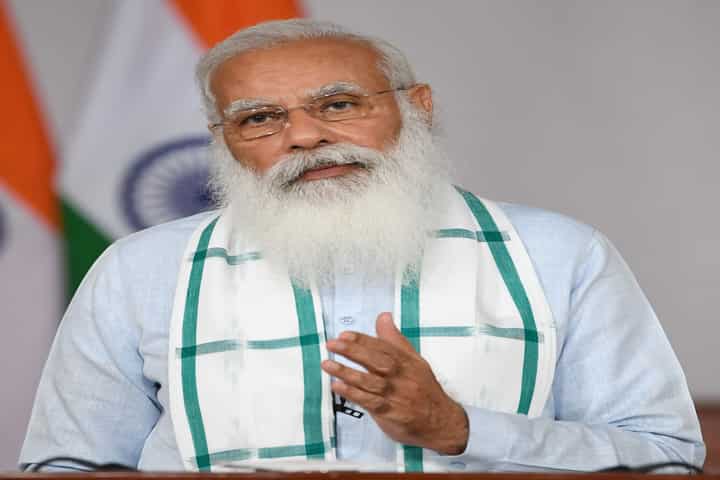Prime Minister Narendra Modi on Saturday said the target date for achieving 20 per cent ethanol-blending with petrol has been advanced by five years to 2025 instead of 2030 in order to reduce pollution, increase the income of farmers and cut dependence on oil imports.
Speaking at the launch of the ethanol road map on the occasion of World Environment Day, PM Modi said, “besides helping the environment, the focus on ethanol is also leaving a positive impact on the lives of farmers.”
PM Modi said that till 2014, on an average, only 1.5 percent of ethanol could be blended in India which has now reached about 8.5 percent. In 2013-14, about 38 crore litres of ethanol were purchased in the country which has now grown to more than 320 crore litres.
He said that a large part of this eight-fold increase in ethanol procurement has benefitted the sugarcane farmers of the country. Last year, oil companies spent Rs 21,000 crore on ethanol procurement, he pointed out, while referring to the benefits accruing to the farmers.
During the event the PM interacted with a farmer from Pune who shared his experience of organic farming and use of biofuel in agriculture.
The Prime Minister released the "Report of the Expert Committee on Road Map for ethanol blending in India 2020-2025". He also launched the ambitious E-100 pilot project in Pune for the production and distribution of ethanol across the country. The theme for this year’s event is ‘promotion of biofuels for a better environment’.
Speaking on the occasion, the Prime Minister said that India has taken another leap by releasing a detailed roadmap for the development of the ethanol sector on the occasion of World Environment Day. He said that ethanol has become one of the major priorities of 21st century India.
The Prime Minister remarked that the 21st century India can get energy only from the modern thinking and modern policies of the 21st century. With this thinking, the government is continuously taking policy decisions in every field.
He said today, a lot of emphasis is being laid on building the necessary infrastructure for the production and purchase of ethanol in the country. Most of the ethanol manufacturing units are mostly concentrated in 4-5 states where sugar production is high but now Food Grain Based Distilleries are being established to expand this to the whole country. Modern technology based plants are also being set up in the country to make ethanol from agricultural waste.
Climate change
The Prime Minister said that India is a strong proponent of climate justice and is moving ahead with a lofty global vision like the founding of International Solar Alliance for realizing the vision of One Sun, One World, One Grid and the Coalition for Disaster Resilient Infrastructure initiative. He noted India has been included in the top 10 countries of the world in the Climate Change Performance Index. He added that India is also aware of the challenges that are being faced due to climate change and is also working actively.
The Prime Minister spoke about the hard and soft approaches taken to fight climate change. On the hard approach, he noted that our capacity for renewable energy has increased by more than 250 percent in the last 6-7 years. India is today among the top 5 countries of the world in terms of installed renewable energy capacity. The capacity of solar energy has increased by about 15 times in the last 6 years.
The Prime Minister said that the country has also taken historic steps with a soft approach, today the common man of the country has joined and is leading the Pro-Environment Campaign like avoiding single use plastic, beach cleaning or Swachh Bharat. He added that the impact of giving more than 37 crore LED bulbs and more than 23 lakh Energy Efficient Fans are not discussed often. He said similarly, by providing free gas connections under the Ujjwala scheme, by providing electricity connections under the Saubhagya scheme, to crores of poor, their dependence on wood has greatly reduced. Apart from reducing pollution, it has also helped a lot in improving health and strengthening environmental protection.




















